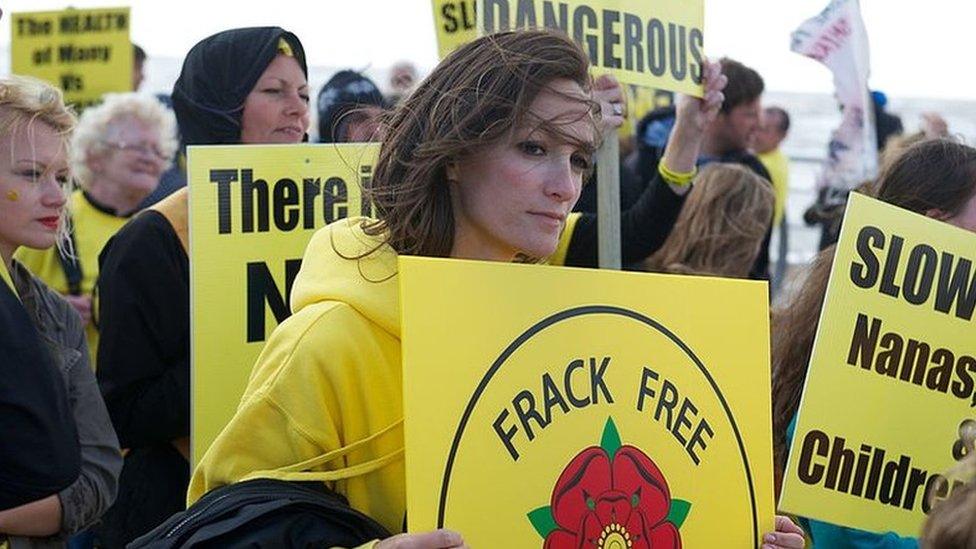Fracking moratorium 'should be extended' to underground coal gasification
- Published

Cluff Natural Resources wants to build the UK's first deep offshore UCG plant to exploit coal seams under the Forth
Anti-fracking groups have called on the Scottish government to extend its moratorium on the development of unconventional gas.
They want it to include underground coal gasification (UCG), a technique used to produce gas from coal seams deep underground.
The groups claimed it was the most "experimental and frightening method".
The Scottish government said it was taking a "careful, considered and evidence-based approach".
It also said many powers relating to UCG were reserved to Westminster.
The Scottish government announced in January that it was imposing a moratorium on granting consents for shale gas and coalbed methane developments in Scotland while further research and a public consultation was carried out.
Firth of Forth
The moratorium did not include underground coal gasification, which campaigners have claimed raises similar environmental and public health concerns to shale gas and coalbed methane techniques.
Supporters of UCG argue that it is a way of providing cleaner energy, diversity of supply and energy security for the UK.
There are already plans to exploit remaining coal reserves deep beneath the Firth of Forth and the Solway.
Energy company Cluff Natural Resources has estimated there are up to 335 million tonnes of coal under the seabed of the Forth alone.
It wants to build the UK's first deep offshore UCG plant to exploit the coal seams.
In a robust response to the anti-fracking groups, Cluff said there had been more than 100 UCG projects worldwide since the technology was first demonstrated in the 1930s, and that, when done properly, "there are no inherent risks associated with the process or the technologies employed in UCG".
Andrew Nunn, the group's chief operating officer, added: "Typically, the ill-informed opponents of UCG choose to focus on a small number of negative outcomes during the developmental phases of the technology rather than the opportunities that a well-designed and operated UCG project could bring to the people of Scotland in the form of more competitive local industry, new employment opportunities, local tax revenue and energy security.
"These increasingly extreme groups oppose practically all forms of energy development in Scotland and do not represent the vast majority of the population.
"They have no democratic legitimacy and should not be allowed to dictate government policy, which works to the benefit of the entire nation.
"The misleading and increasingly inflammatory language they use is deliberately designed to instil an unwarranted sense of fear and unease in communities for their own political ends, which is a great disservice to those they claim to represent."
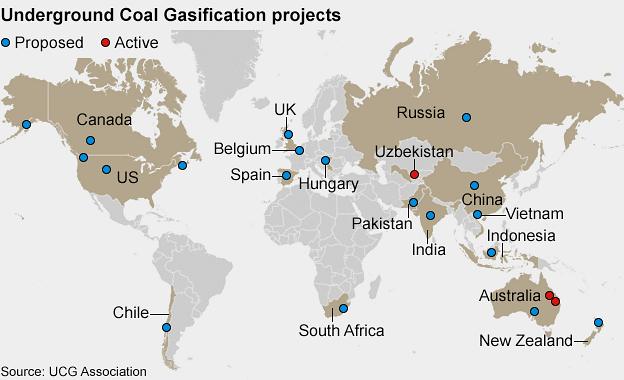
But the anti-fracking groups have written to Energy Minister Fergus Ewing calling for him to halt the UCG industry in its tracks.
The letter has been signed by organisations including Friends of the Earth, the Unison union and the Women's Environmental Network, as well as a number of community anti-fracking groups and academics.
It expressed their "grave concern" that UCG is not currently covered by the scope of the Scottish government's moratorium.
And it said Scottish ministers already had sufficient powers to impose a moratorium on UCG.
The letter said: "While we are disappointed that Coal Authority licensing is not proposed to be devolved to Holyrood under the Smith Commission, we note that the means of imposing a moratorium on unconventional oil and gas developments - ensuring that no planning permissions or environmental permits are granted for these developments - could equally be applied to underground coal gasification."
Mary Church, head of Campaigns at Friends of the Earth Scotland, claimed UCG was the "most experimental and frightening method of unconventional gas extraction currently threatening Scottish communities."
She also said recent trials around the world had gone "badly wrong", and described the climate impact of the technology as "simply unacceptable".
"It makes no sense for a country with ambitious climate targets and the means to achieve them with renewables to flirt with such a risky form of energy production." she added.
"Communities threatened with Cluff's plans to ignite the coal under the Forth are asking why hasn't the Scottish government acted to protect them in the way that communities facing shale gas fracking and coal bed methane drilling are.
"The case to include underground coal gasification in the new moratorium and planned work on health and environmental impacts of unconventional gas is crystal clear, and the means of doing so totally within the power of the Scottish government."
'Appropriate controls'
In response, the Scottish government said its "careful, considered and evidence-based approach" had been underpinned by the recent moratorium announcement, which outlined its plans for a full public consultation and further research.
A spokesman said: "The moratorium is specifically about onshore unconventional oil and gas developments, including fracking - further to confirmation by the UK government that it would devolve onshore licensing powers for these types of development.
"Many of the relevant powers relating to underground coal gasification remain with Westminster and the licensing regime is not being devolved, though we will work with Sepa and all relevant regulators to ensure we have the appropriate controls and regulations to protect the environment.
"The Scottish government will continue to take an evidence-based approach to the development of new energy technologies, which should give security and confidence to the people of Scotland that such resources would be developed in an environmentally safe and satisfactory way."
- Published14 April 2014
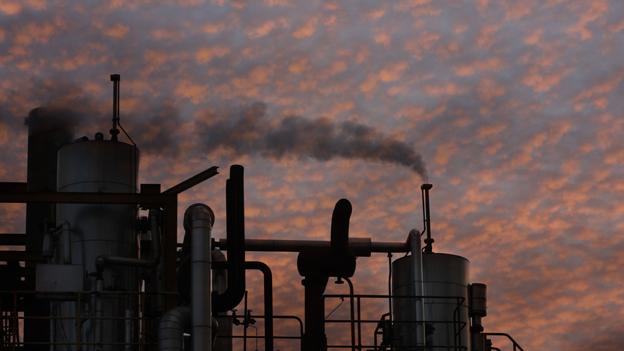
- Published13 December 2012
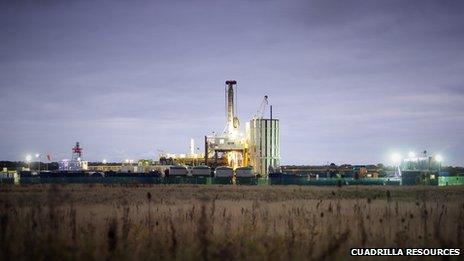
- Published16 July 2013
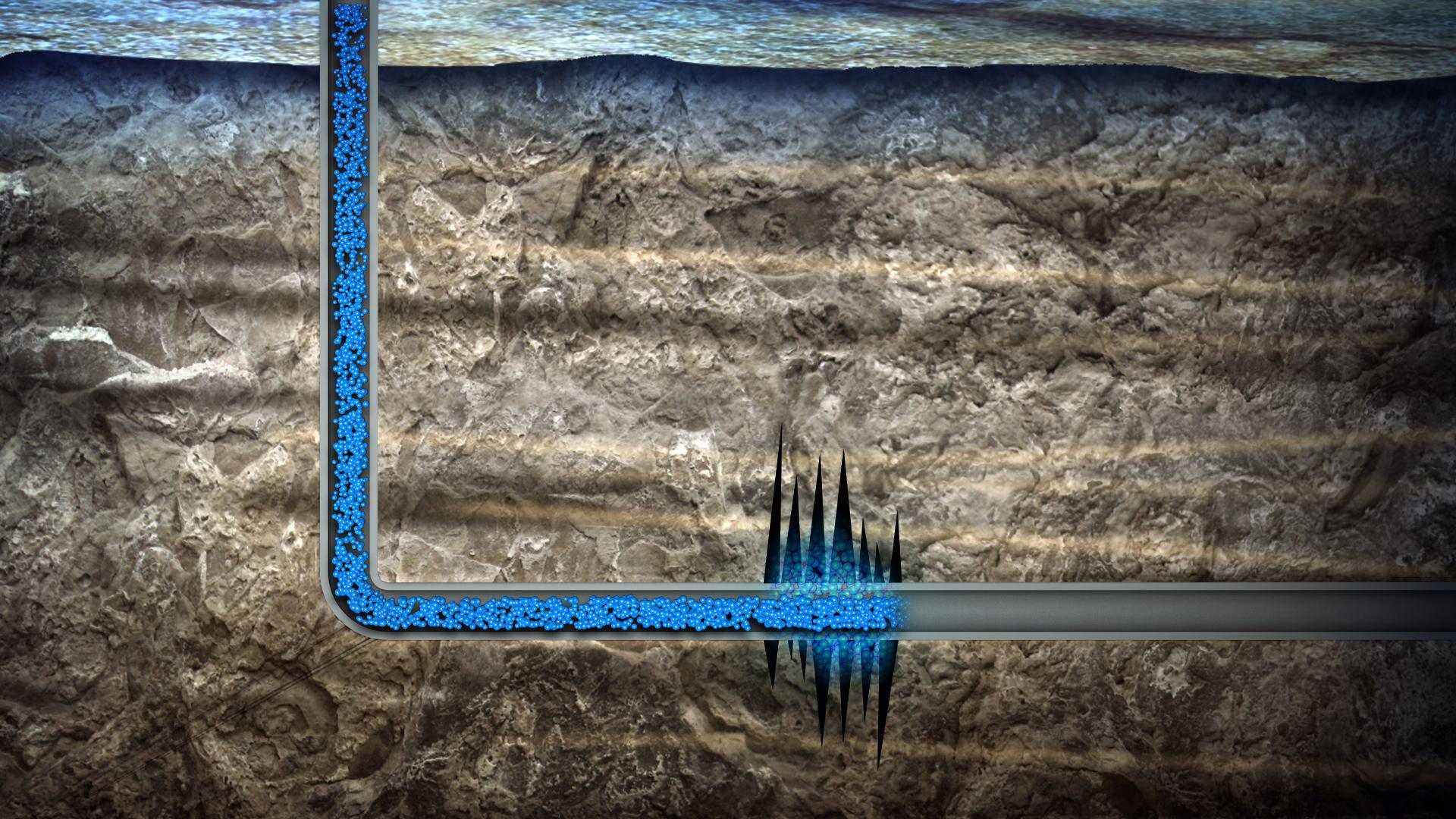
- Published28 January 2015
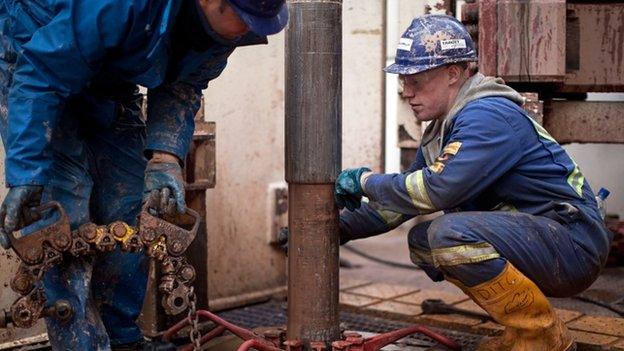
- Published10 November 2014

